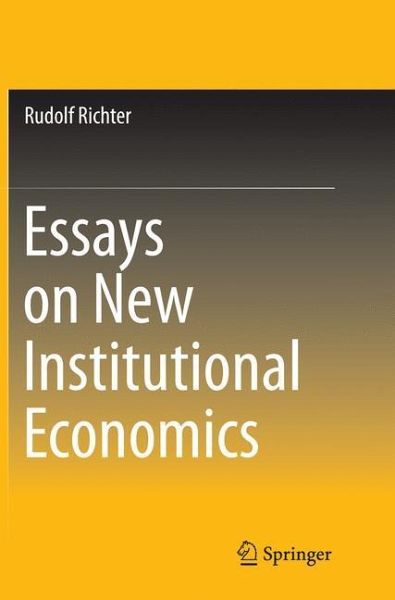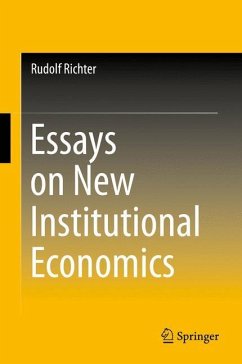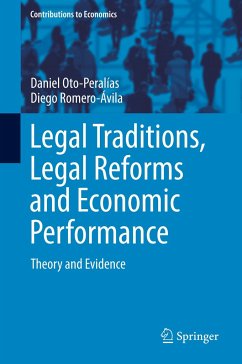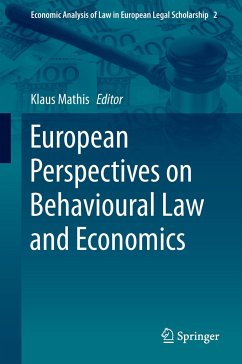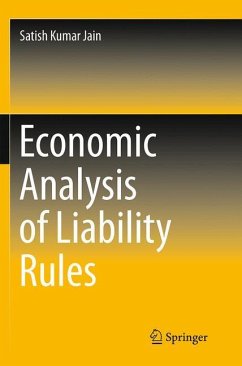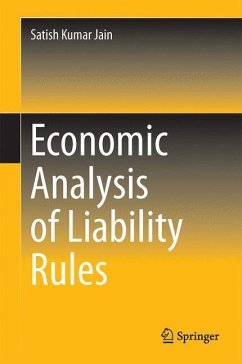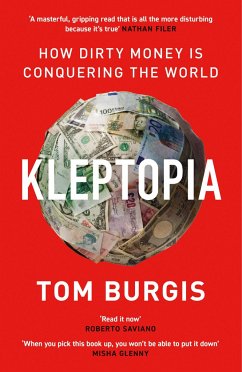Rudolf Richter is emeritus Professor of economics and Director of the Workshop on The New Institutional Economics at the University of Saarland, Saarbrücken, Germany. He started his academic career in 1953 at the J. W. Goethe University, Frankfurt/ Main, Germany, interrupted by two separate years at American Universities, teaching and working largely on microeconomic issues. In 1961 he became professor of economics at the Christian Albrecht University, Kiel, Germany. In 1964 he received an offer from the University of Saarland, Saarbrücken where he worked until 1994. During this time he spent several years as visiting professor at the University of Michigan, at Texas A&M University, and as visiting fellow at the Hoover Institution, Stanford University. While in Saarbrücken he worked on and taught mainly macroeconomic issues with a special interest in money-macroeconomics. In 1978, he assumed the editorship of the Zeitschrift für die gesamte Staatswissenschaft, a position he held for 17 years until his retirement in 1994. He became interested in the work of Ronald Coase, Oliver Williamson, Douglass North and other representatives of what is known today as New Institutional Economics (NIE), a field he made public in Germany and beyond, by starting (jointly with Eirik Furubotn) an annual series of International Seminars on NIE for invited participants (in particular leading scholars of the field). He published their presented papers and comments in the Zeitschrift für die gesamte Staatswissenschaft,which under his editorship became the Journal of Institutional and Theoretical Economics (from 1986 on). He also organized seven Summer Schools on NIE and together with Eirik Furubotn published a comprehensive monograph on the subject (1st edition 1998, 2nd edition 2005).
